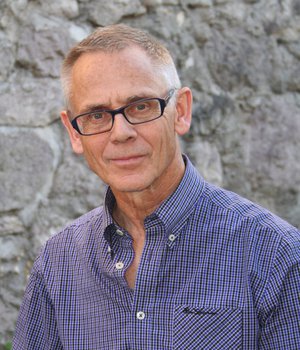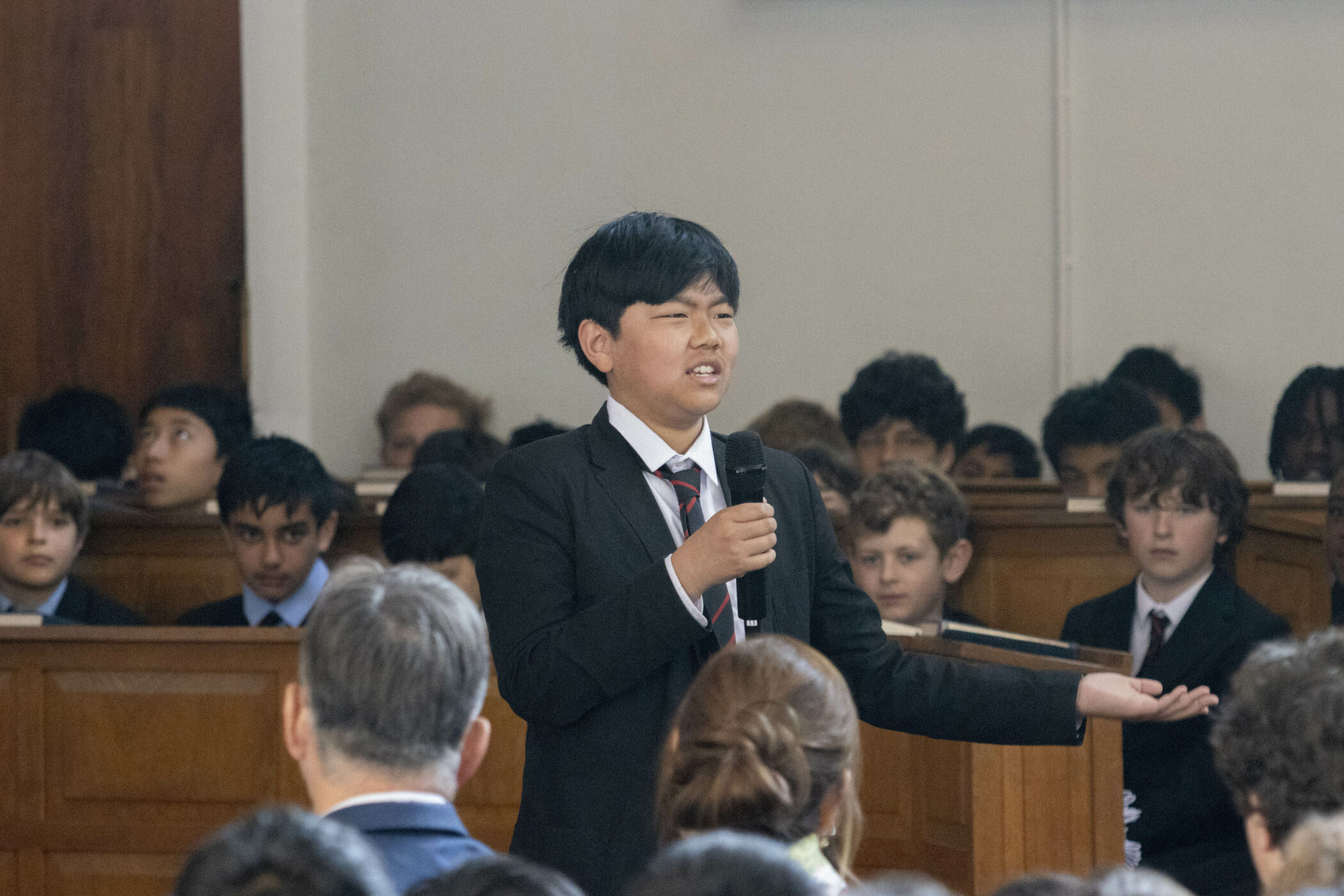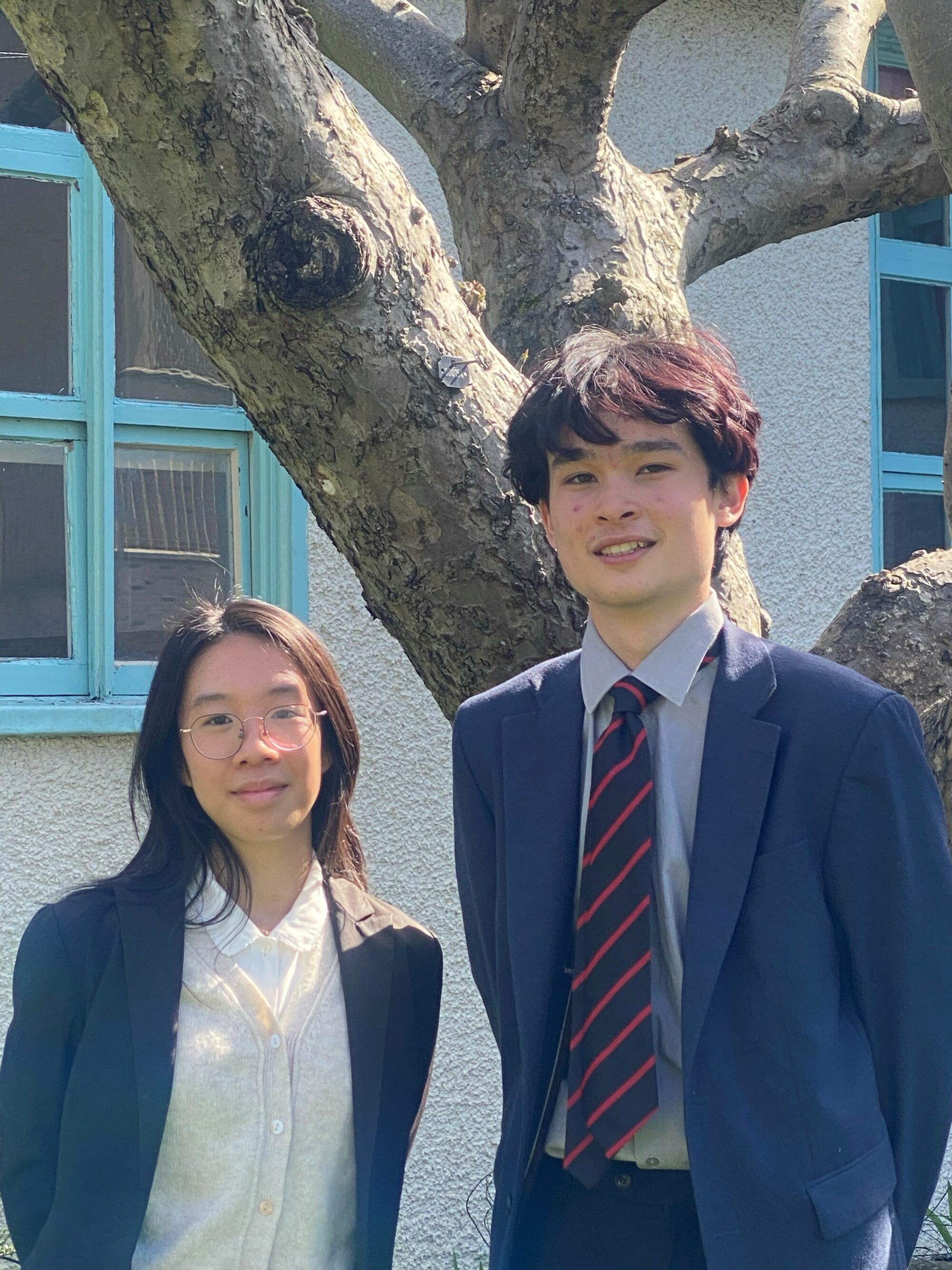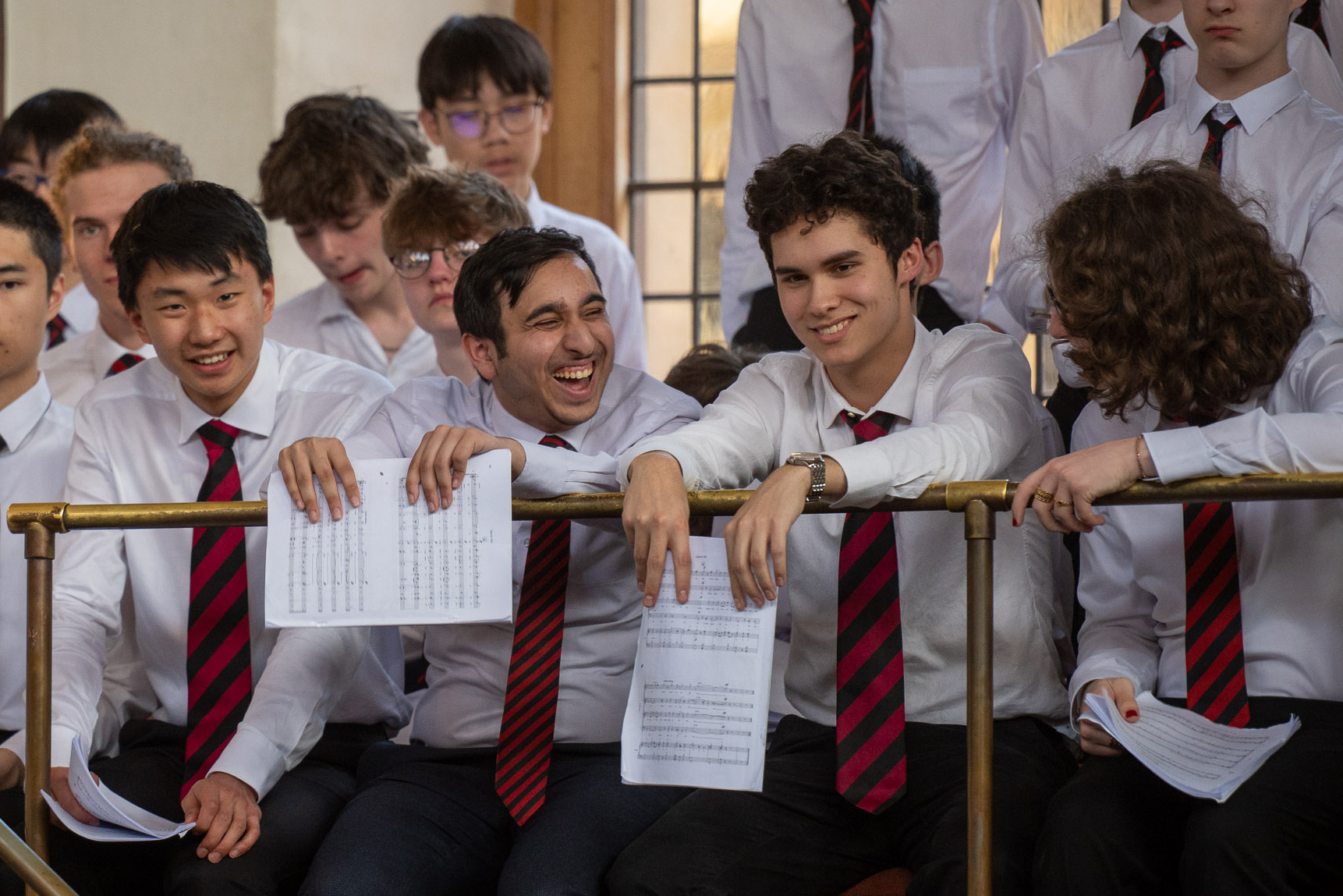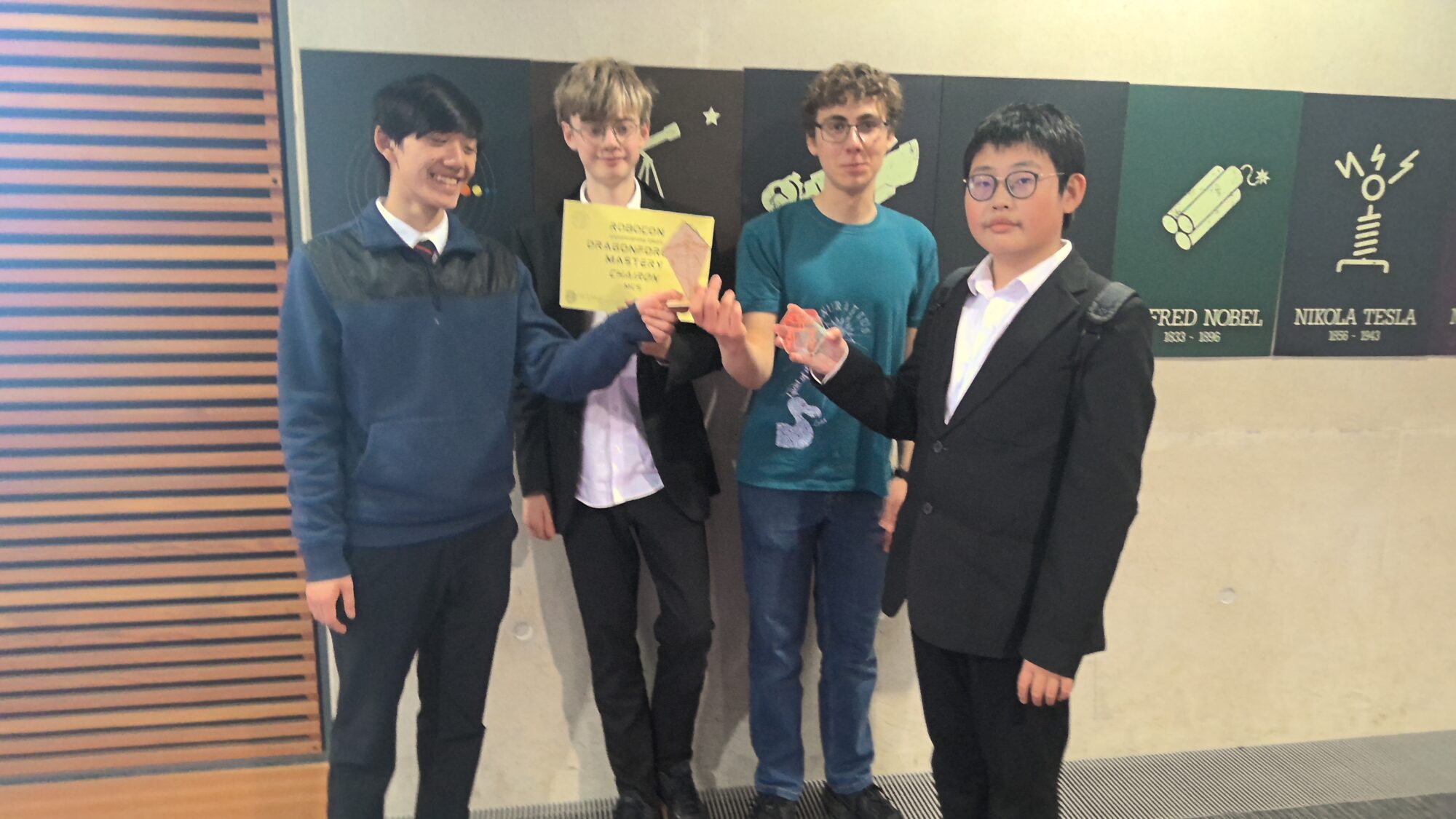(26 May 1948 – 30 January 2024)
We have been informed by his brother Charles (OW 1968) of the death of Stephen Mitchell in Berlin where he lived.
Stephen Mitchell was the first of four children of David and Barbara Mitchell, University lecturers at Oxford University in philosophy and ancient history respectively.
He attended The Dragon School and then Magdalen College School in Oxford, before gaining an Exhibition to St John’s College, Oxford, to read Lit Hum (classics and ancient history). He went on to Christ Church, Oxford, as a junior research fellow. His DPhil was on the history and archaeology of the Roman province of Galatia and he then taught for many years at Swansea University, where he became Professor of Classics and Ancient History. Later he was appointed Leverhulme Professor of Hellenistic Culture at Exeter University and in his very active retirement was Professor Emeritus.
As a boy, he was an intellectually precocious, diligent pupil, who was always first in the family to do his homework. But he was also a gymnast, fenced for his school team, and played squash for his college. He remained a slim, wiry figure, and continued to participate in exercise classes and sport in the park in Berlin until the end of his life.
It was after leaving school that he first joined archaeological digs, initially in England, sometimes sleeping in an unheated tool shed on site in the depths of winter. Later he dug with Kathleen Kenyon in Jerusalem, in Iran, and subsequently in Anatolia with the British Institute of Archaeology. However he soon found field surveys and studies more productive. In a single fortnight he discovered three cities of the Pisidian people, high in the Taurus mountains. From a young age, he became a revered figure in the historical and archaeological community in Turkey, a country whose Hellenistic, Roman and early Byzantine history he studied intensively. He spent long periods there almost every year from the age of 22, most recently in the autumn of 2023. He joined the British Institute at Ankara in 1970, later becoming a council member, Honorary Secretary and then its Chairman. He remained its Vice President at the time of his death.
His publications include Anatolia: land, men and gods in Asia Minor (2 vols) and A History of the Later Roman Empire 285-641 and many articles for learned journals.
Stephen was given Fellowships at the Institute of Advanced Studies at Princeton and at the University of Göttingen. He was recognised as a world authority on the epigraphy of Asia Minor, serving as President of the British Epigraphy Society and of the Association Internationale d’Épigraphie Grecque et Latine. He was awarded the prestigious Gustave Schlumberger Prize by the Académie des Inscriptions et Belles-Lettres in Paris in 2020 for the second volume of his work, with his friend and colleague, the late David French, The Greek and Latin Inscriptions of Ankara.
However he was wide-ranging in his research topics, which included early Christianity, olive production and transport. Although he was an atheist, his work on the history of early Christianity in Asia Minor led to him being awarded an Honorary Doctorate in Theology by the Humboldt University in Berlin. He published his book on The Christians of Phrygia from Rome to the Turkish Conquest in 2023.
He was made a Fellow of the British Academy in 2002 and an Honorary Fellow of St John’s College, Oxford, in recognition of his major contributions to the study of ancient history and academic co-operation between Britain and Turkey, in 2018.
He was fluent in Turkish and German and capable of giving lectures and seminars in several European languages.
He enjoyed a 50-year happy and stimulating marriage to his wife Matina (a public administrator and, latterly, artisan baker). She survives him together with their children, Lawrence (a mathematician and computer scientist), Daniel (a commercial solicitor) and Samuel (an educational and arts administrator) and their first, cherished grandchild, Layla-Mae.
After his retirement from Exeter, Matina and Stephen moved to Sheffield, where she ran a successful artisan bakery, before they finally settled in Berlin, in another country dear to them and one in which, with its deep tradition of classical study and archaeology, his work was particularly appreciated.
Shy and even a little puritanical in his youth, he grew to be an easy companion, who could talk with anyone. People recognised his integrity, curiosity, willingness to listen and to look for the best in others, his carefully considered and quietly expressed judgment, wry humour, and, for a man of his achievements, astonishing modesty. These were among the qualities, together with a commitment to public service and a capacity for hard and efficient work, which made him such a capable administrator as well as a tutor loved by his pupils.
He was unobtrusively but hugely generous, making regular significant donations to carefully selected charities and successfully encouraging other family members to do the same. On one occasion he flew to Kenya to visit Urafiki, a community development project in education and agriculture, wearing several extra jumpers to give away, since they would not fit into his luggage.
In appearance and character, he particularly resembled his mother, Barbara, with whom he shared a deep bond. He devoted much time to her care when she developed dementia at the end of her long life.
In his own later life, he took up learning the piano and would practice daily. But his love and knowledge of classical music was lifelong. He and Matina were generous sponsors of the annual Oxford Lieder Festival.
It was in their flat in Berlin that he unexpectedly and suddenly collapsed, due to an aortic dissection, which he did not survive. It was a shocking bereavement for his family and many friends across the world, and cut him down, at the age of 75, when he was still intellectually productive and physically active, but, at least, it spared him any years of significant decline. And, of him, it can truly be said that he lived a full life and did his utmost to make the world a wiser and better place.
 MCS ranks among the top independent secondary schools, and in 2024 was awarded Independent School of the Year for our contribution to social mobility.
MCS ranks among the top independent secondary schools, and in 2024 was awarded Independent School of the Year for our contribution to social mobility.

 28 of our pupils achieved 10 or more 8 or 9 grades in 2024.
28 of our pupils achieved 10 or more 8 or 9 grades in 2024.
 In 2023-24, MCS received over £448,000 in donated funds.
In 2023-24, MCS received over £448,000 in donated funds.